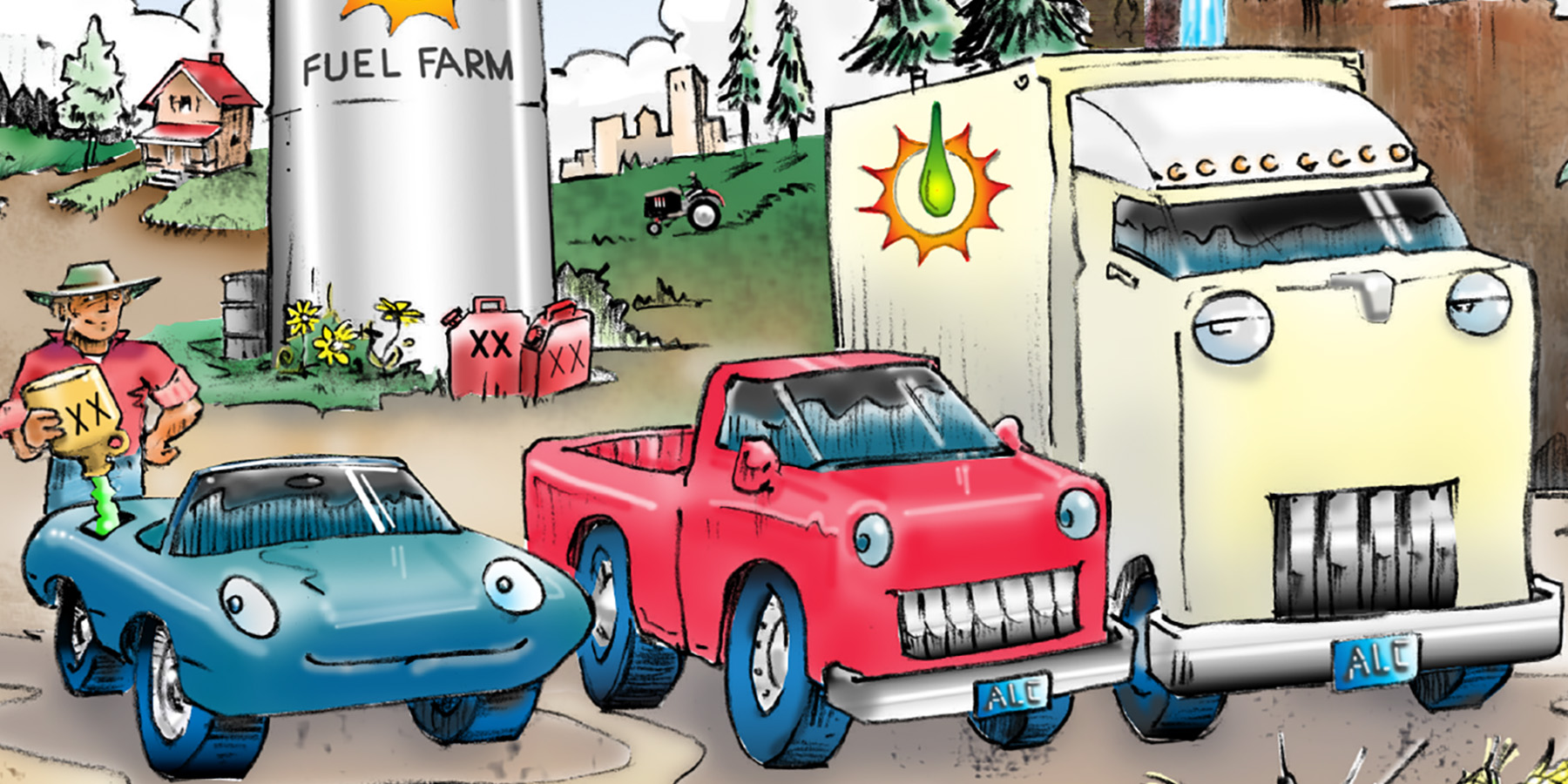David Blume, author of Alcohol Can Be a Gas! Fueling an Ethanol Revolution for the 21st Century, is widely acknowledged as the world’s leading expert in production and use of ecological alcohol fuel.
You can learn much, much more about alcohol fuel and Dave’s involvement with it at his Alcohol Can Be a Gas! website, alcoholcanbeagas.com.
Here’s a very quick look at some of the many reasons to use alcohol fuel instead of fossil fuels.- Almost every country can become energy-independent. Anywhere that has sunlight and land can produce alcohol from plants. Brazil, the fifth largest country in the world, imports no oil, since half its cars run on alcohol fuel made from sugarcane, grown on 1% of its land.
- We can reverse global warming. Since alcohol is made from plants, its production takes carbon dioxide out of the air, sequestering it, with the result that it reverses the greenhouse effect (while potentially vastly improving the soil). Recent studies show that in a permaculturally designed mixed-crop alcohol fuel production system, the amount of greenhouse gases removed from the atmosphere by plants—and then exuded by plant roots into the soil as sugar—can be 13 times what is emitted by processing the crops and burning the alcohol in our cars.
- We can revitalize the economy instead of suffering through Peak Oil. Oil is running out, and what we replace it with will make a big difference in our environment and economy. Alcohol fuel production and use is clean and environmentally sustainable, and will revitalize families, farms, towns, cities, industries, as well as the environment. A national switch to alcohol fuel would provide many millions of new permanent jobs.
- No new technological breakthroughs are needed. We can make alcohol fuel out of what we have, where we are. Alcohol fuel can efficiently be made out of many things, from waste products like stale donuts, grass clippings, food processing waste-even ocean kelp. Many crops produce many times more alcohol per acre than corn, using arid, marshy, or even marginal land in addition to farmland. Just our lawn clippings could replace a third of the autofuel we get from the Mideast.
- Unlike hydrogen fuel cells, we can easily use alcohol fuel in the vehicles we already own. Unmodified cars can run on 50% alcohol, and converting to 100% alcohol or flexible fueling (both alcohol and gas) costs only a few hundred dollars. Most auto companies already sell new dual-fuel vehicles.
- Alcohol is a superior fuel to gasoline! It’s 105 octane, burns much cooler with less vibration, is less flammable in case of accident, is 98% pollution-free, has lower evaporative emissions, and deposits no carbon in the engine or oil, resulting in a tripling of engine life. Specialized alcohol engines can get at least 22% better mileage than gasoline or diesel.
- It’s not just for gasoline cars. We can also easily use alcohol fuel to power diesel engines, trains, aircraft, small utility engines, generators to make electricity, heaters for our homes—and it can even be used to cook our food.
- Alcohol has a proud history. Gasoline is a refinery’s toxic waste; alcohol fuel is liquid sunshine. Henry Ford’s early cars were all flex-fuel. It wasn’t until gasoline magnate John D. Rockefeller funded Prohibition that alcohol fuel companies were driven out of business.
- The byproducts of alcohol production are clean, instead of being oil refinery waste, and are worth more than the alcohol itself. In fact, they can make petrochemical fertilizers and herbicides obsolete. The alcohol production process concentrates and makes more digestible all protein and non-starch nutrients in the crop. It’s so nutritious that when used as animal feed, it produces more meat or milk than the corn it comes from. That’s right, fermentation of corn increases the food supply and lowers the cost of food.
- Locally produced ethanol supercharges regional economies. Instead of fuel expenditures draining capital away to foreign bank accounts, each gallon of alcohol produces local income that gets recirculated many times. Every dollar of tax credit for alcohol generates up to $6 in new tax revenues from the increased local business.
- Alcohol production brings many new small-scale business opportunities. There is huge potential for profitable local, integrated, small-scale businesses that produce alcohol and related byproducts, whereas when gas was cheap, alcohol plants had to be huge to make a profit.
- Scale matters—most of the widely publicized potential problems with ethanol are a function of scale. Once production plants get beyond a certain size and are too far away from the crops that supply them, closing the ecological loop becomes problematic. Smaller-scale operations can more efficiently use a wide variety of crops than huge specialized one-crop plants, and diversification of crops would largely eliminate the problems of monoculture.
- The byproducts of small-scale alcohol plants can be used in profitable, energy-efficient, and environmentally positive ways. For instance, spent mash (the liquid left over after distillation) contains all the nutrients the next fuel crop needs and can return it back to the soil if the fields are close to the operation. Big-scale plants, because they bring in crops from up to 45 miles away, can’t do this, so they have to evaporate all the water and sell the resulting byproduct as low-price animal feed,which accounts for half the energy used in the plant.
Posts
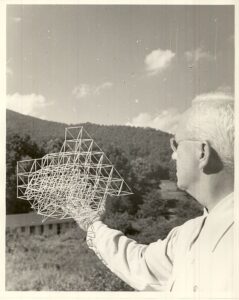
R. Buckminster Fuller’s Foreword to Alcohol Can Be a Gas!
Buckminster Fuller wrote the 1983 Foreword to the original version of my book, Alcohol Can Be a Gas! Fueling an ...
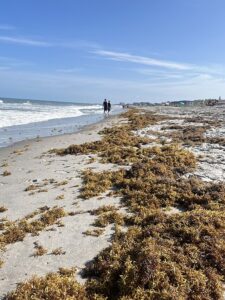
Profitable Surplus: Sargassum Solutions
Mexicans may think it's unlucky to have seaweed wash up on their beautiful beaches, but, looked at from the natural ...

David Blume: Flex-Fuel Cars and Alcohol Cookstoves
A short introduction to some of the ways that alcohol fuel — also called ethanol — can transform people's lives ...

Alcohol as Marine Replacement Fuel
I attended a high-level think tank in Mexico some years ago. We were there to work on the world’s pressing ...
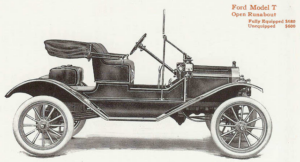
The Hidden History Of Henry Ford’s TRUE Intended Fuel For America… Made By FARMERS
Learn the true history of alcohol as the clean, renewable fuel in America, a story that oil companies and the ...
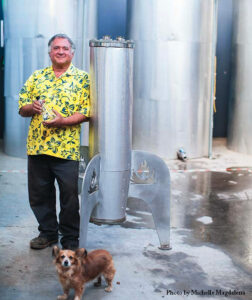
Edible Innovators: Still Farming: Organic vegetables and “the world’s second oldest profession” go hand in hand on Whiskey Hill
In this fascinating article in Edible Monterey Bay, Deborah Luhrman writes: "What was once a giant packing shed now houses ...

The Process & Benefits of Our Double Fermentation
As part of our zero waste ethos at David Blume's Whiskey Hill Farms & Science Center, we use two fermentation ...
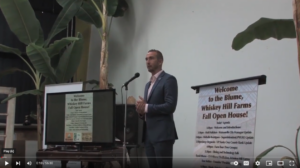
David Blume Open House at Whiskey Hill Farms
David Blume hosted an open house at Whiskey Hill Farms to demonstrate the no-waste local-scale alcohol distillery set-up and other ...
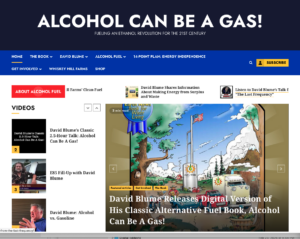
Get Involved with Our Alcohol Fuel Revolution
There are lots of good suggestions in the "Get Involved" section of our alcoholcanbeagas.com website ...

Destilación de Alcohol Para Convirtir la Basura Biológica en Combustible
David Blume describe cómo crear alcohol y coproductos valiosos utilizando desechos de alimentos y otros productos de desecho ricos en ...

